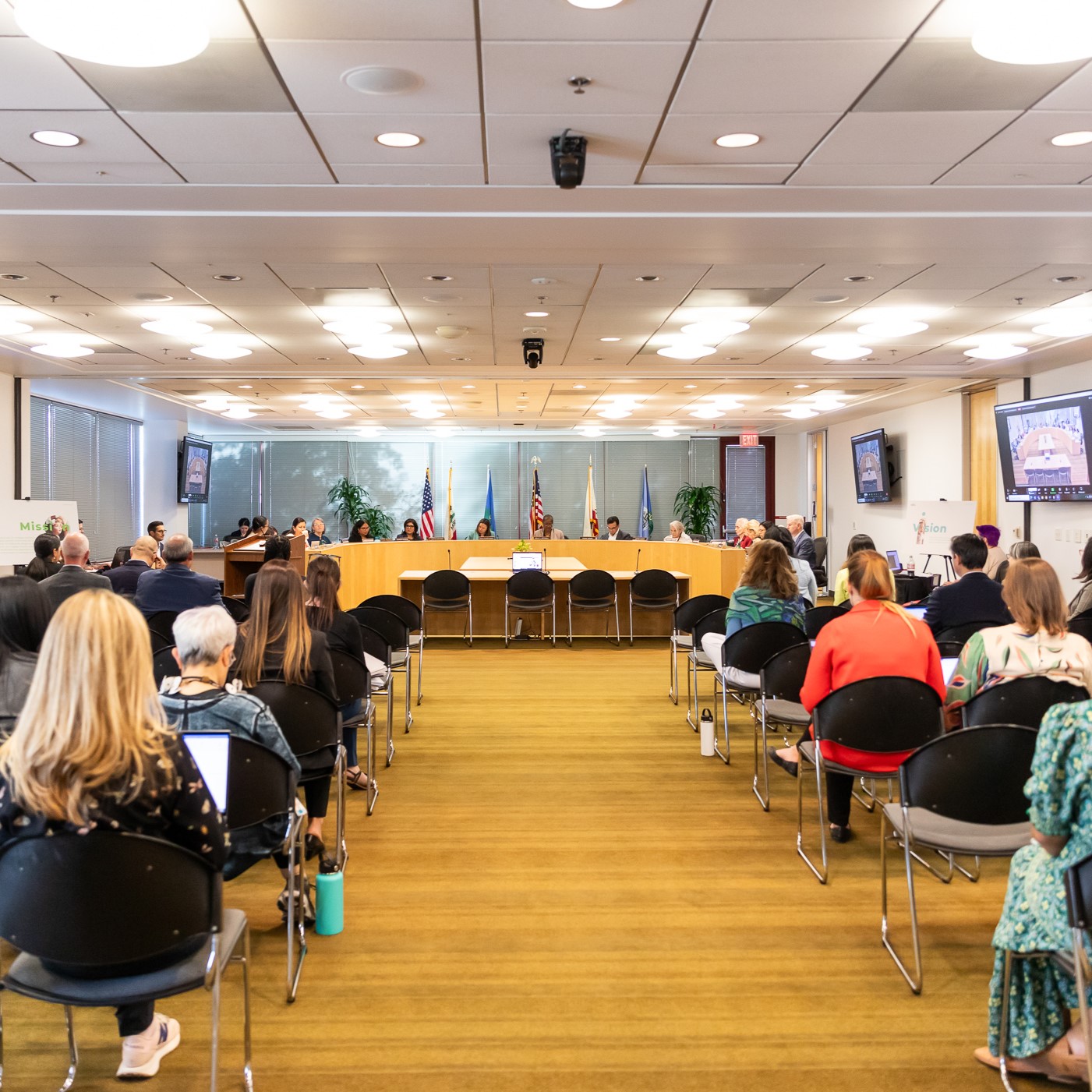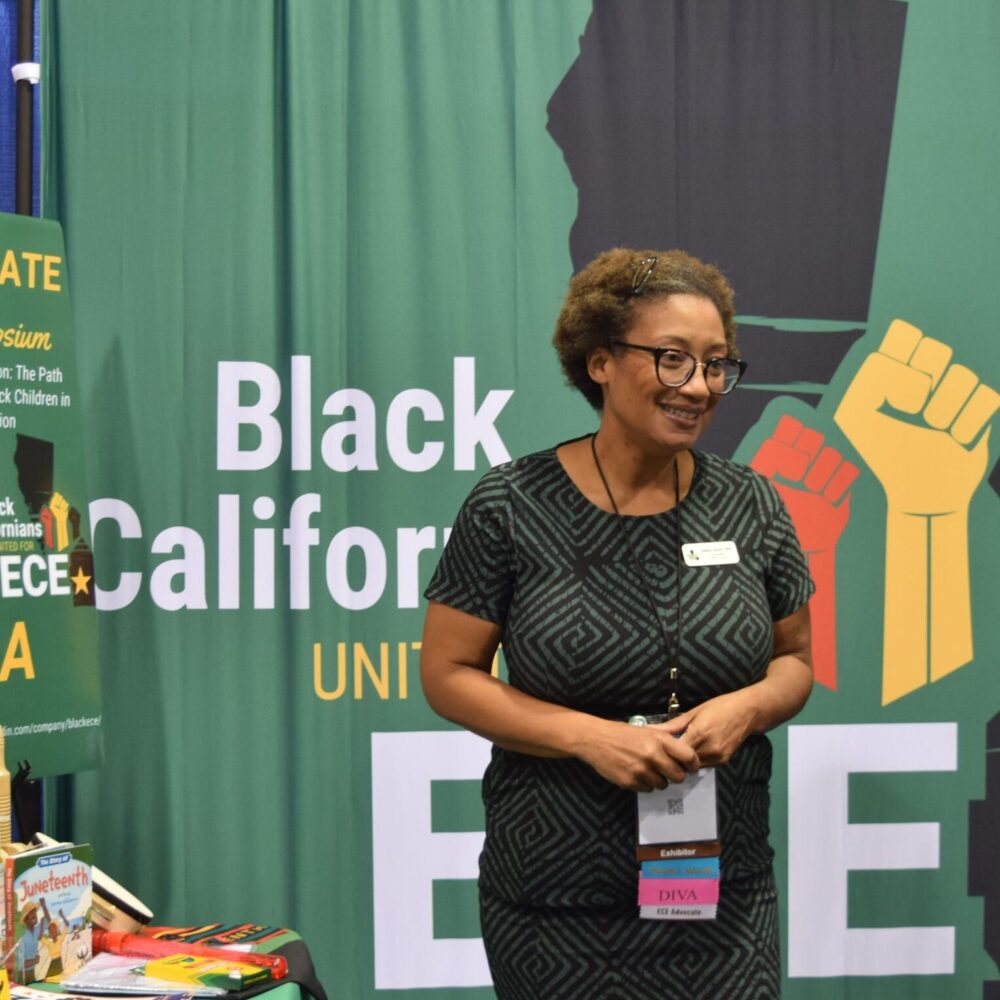By, Ruel Nolledo | Freelance Writer
August 19, 2025
First 5 LA’s Board of Commissioners met on August 14, 2025, for an information-only session centered on the urgency of planning for the future in the midst of a rapidly changing policy landscape. Commissioners heard updates on state and federal budgets and their impact on families, a presentation on L.A. County’s efforts to safeguard the local Head Start in the face of federal shifts, and data-driven insights on immigration, equity, and the long-term strategies needed to ensure young children can thrive. Guest presenters included Chris Hoene of the California Budget & Policy Center and Dr. Manuel Pastor of USC’s Equity Research Institute.
L.A. County Supervisor and Board Chair Holly Mitchell began the meeting by noting that, while the items on the meeting agenda were informational in nature, the content provided would be crucial to First 5 LA as circumstances continue to evolve at the state and federal levels.
“We are going to be discussing some complex and, shall I say, controversial matters that have a significant impact on all of our family, friends, and neighbors,” said Mitchell. “The information shared today will equip us to plan thoughtfully and effectively for the necessary changes ahead.”
Mitchell also recommended attendees visit the L.A. County CEO’s site to get a better understanding of the macro-level budget stressors affecting several County-run programs, such as SNAP/CalFresh and other services vital to young children.
During her remarks, First 5 LA President and CEO Karla Pleitéz Howell underscored the need for First 5 LA to “hold both fronts” — addressing urgent community needs created by state and federal budget cuts and policy changes, while also keeping sight of long-term strategies for children and families. She pointed to immediate priorities such as food security, flexibility for grantees, and standing with immigrant communities, while noting that deeper prevention work, equity-driven funding, and upcoming innovation grants remain central to the organization’s vision.
“Today you will hear things that honestly should upset all of us,” she added. “But the intent of sharing this information is to make sure that we are thinking together.” The goal, she stressed, was not only to understand the real impact of the shifts but to identify onramps for collective action with partners and communities.
State Advocacy Recap
Following Pleitéz Howell’s remarks, First 5 LA staff provided an update on activities at the state level. Aurea Montes-Rodriguez, vice president of Community Engagement and Policy, shared with Commissioners the urgent nature of recently enacted changes, with federal and state decisions already beginning to place pressure on Medi-Cal, Head Start, and the broader safety net. These cuts, she explained, are not just numbers on a page but policies that land hardest on families with young children, particularly those already facing systemic inequities.
“These decisions are hitting families hard — limiting families’ access to healthcare, to childcare, early learning, even the ability to put healthy food or enough food on the table for their children,” Montes-Rodriguez said. “These and housing stability are foundational supports that, when missing, result in trauma and intergenerational trauma at times, and poor outcomes for children.”
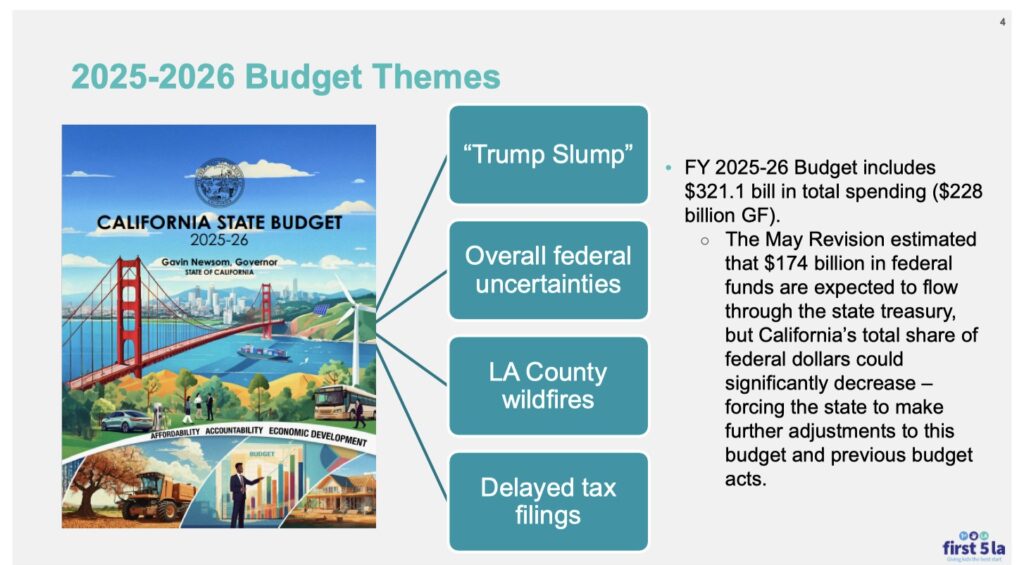
Picking up the thread, Ofelia Medina, First 5 LA’s senior policy strategist, provided a recap of the organization’s 2025 Advocacy Agenda priorities and how they fared in this year’s legislative and budget process. She covered both key policy wins — such as funding for school meals, child care spaces, and perinatal mental health supports — as well as significant setbacks for California, including a freeze on Medi-Cal enrollment for undocumented adults and delayed implementation of food assistance for immigrant families. These outcomes, Medina emphasized, directly affect the communities First 5 LA serves and illustrate why the organization’s advocacy on housing, food security, and maternal and infant health remains critical.
To find out more, please read the presentation online.
The Federal Landscape
The Commission next heard from Chris Hoene, executive director of the California Budget & Policy Center, who placed these developments in a broader context, outlining how the recently enacted state and federal budgets intersect. Roughly 40 percent of the state budget, he pointed out, comes from federal sources. As a result, federal decisions on health care, food assistance, and housing ripple directly into California’s fiscal health and its ability to support children and families.
That dependency makes the stakes of HR 1 — the federal budget reconciliation bill passed on July 4 — especially stark. The new federal budget delivers trillions in tax cuts to corporations and the wealthy while slashing programs that millions of Californians rely on: nearly $1 trillion in Medicaid reductions, harsh new restrictions on immigrant eligibility, added work requirements and red tape in Medi-Cal, and deep cuts to SNAP (CalFresh) that shift billions in costs to the state. An estimated 3.5 million Californians are expected to lose Medi-Cal coverage. HR 1 also limits marketplace subsidies under Covered California, raising premiums for families and putting as many as 400,000 Californians at risk of losing health coverage.
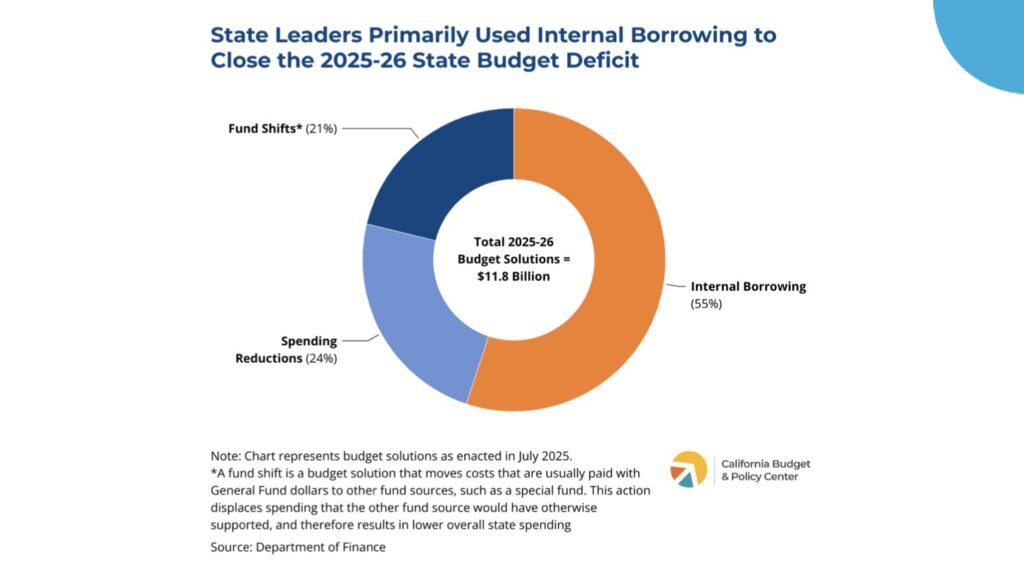
Hoene pointed out that California leaders had already passed their own 2025–26 budget in June, before the full scope of HR 1 was known. That budget closed a $7 billion shortfall largely through reserves and cuts, including reductions to Medi-Cal, child care, and homelessness programs. While state policymakers acted to stabilize finances, Hoene emphasized that they now face even greater pressure to respond proactively to federal actions that target immigrant communities and dismantle public supports.
When asked about potential solutions, Hoene pointed out that the federal government had, in a way, already laid out the roadmap. The $4.5 trillion in tax cuts advanced under the Trump administration, he said, showed just how much revenue is on the table.
“The simple answer is to claw back some of that revenue,” Hoene observed, adding that the state has far more flexibility than local governments to act. He emphasized that California could strengthen its tax system by renewing higher income tax brackets set to expire in 2030 and by increasing taxes on corporations and high-wealth individuals to protect essential services for families.
Hoene’s presentation is available online here.
Protecting Head Start
The Commission next heard from two of their own: Commissioner Maricela Ramírez, who serves as the chief education officer of the Los Angeles County Office of Education, and Alternate Commissioner Luis Bautista, executive director of LACOE’s Head Start and Early Learning Division. The two walked through how federal shifts are destabilizing the Head Start program at every level — from enrollment rules to funding streams to workforce morale — and the strategies LACOE was employing in response to the situation. Commissioner Ramírez framed the conversation around LACOE’s child-first commitment, emphasizing that no policy should unfairly penalize children because of circumstances beyond their control.
“Our focus is on safeguarding children’s fundamental rights to education and overall well-being,” she said. “And ensuring there are no unnecessary barriers that hinder their development or access to opportunities.”
Commissioner Bautista then provided historical and programmatic context. For nearly 60 years, Head Start has served more than 40 million children nationwide, including more than 21,000 across Los Angeles County each year. He noted that the program has never required proof of immigration status for enrollment — until now. Over the past seven months, federal actions have introduced new restrictions, including an executive order curtailing diversity, equity, and inclusion activities, the closure of five regional Head Start offices, and a proposed reclassification of Head Start as a “federal public benefit.” If upheld, the latter would exclude undocumented children from enrolling; however, a federal court has paused implementation of that rule until at least September.
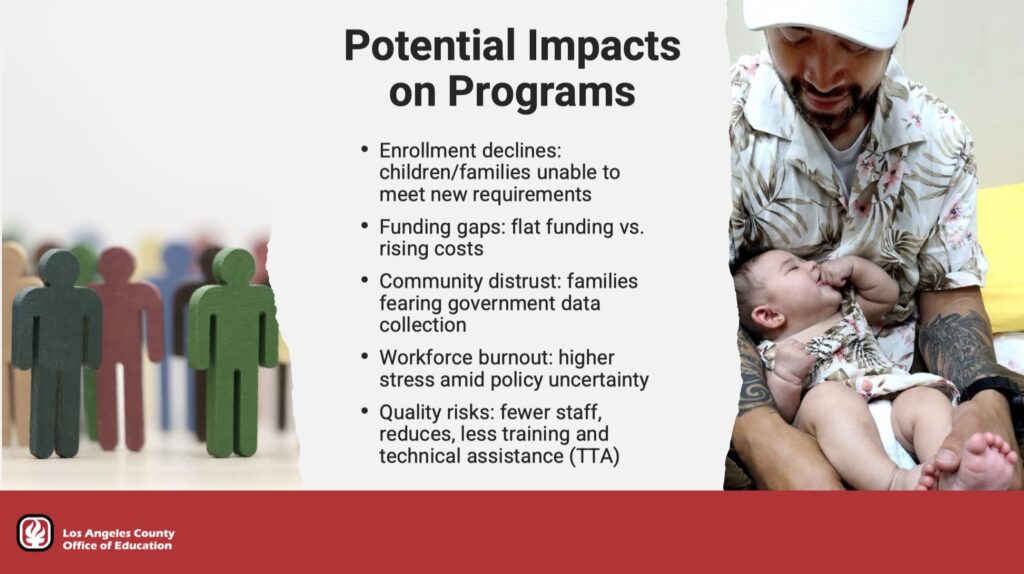
Bautista also highlighted the ripple effects of these shifts: flat federal funding that fails to keep pace with costs, growing fear and distrust among immigrant families, and stress on staff who are being asked to do more with fewer resources. He shared how LACOE is responding by engaging in coalition-based advocacy with partners like the National Head Start Association and the Head Start California Association; participating in formal public comments; sharing data-informed impact stories with policymakers and the media; and engaging the public through town halls, to ensure families understand their rights and know where to turn for support.
For more information, please read the presentation here.
Building Equitable Communities
The meeting concluded with a presentation from Dr. Manuel Pastor, director of USC’s Equity Research Institute, who placed today’s political and economic turmoil in a broader context. He described the current climate as part of a longer series of systemic shocks — from the Great Recession to COVID-19 to “Trump 2.0” — that have intensified anxieties around immigration and deepened existing inequities.
While national rhetoric suggests immigration is surging, Pastor noted that California, and Los Angeles in particular, has actually seen a slowdown in new arrivals. Many newcomers are moving to other states, even as nearly one million undocumented immigrants remain deeply rooted in L.A. County. This means that the issue of mixed-status families, where at least one member has uncertain legal status, ripples across multiple populations, communities and parts of our economy.
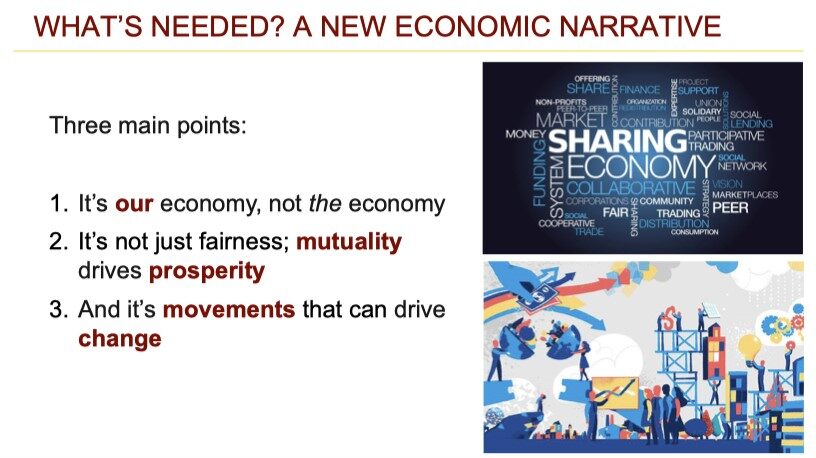
“For the First 5 community, 20% of children have at least one parent who is undocumented,” Pastor said. He added that this reality has day-to-day consequences for mixed-status families: older siblings may live with constant worry about whether their parents will return home, while households face reduced income or even food insecurity, as fear keeps parents from working or shopping.
Pastor also highlighted how widening racial and economic gaps among families with young children threaten to lock in disadvantage across generations. To counter this, he urged leaders to shift the narrative: from fear to interdependence, from “the economy” to “our economy,” and toward equity as a foundation for shared prosperity. He pointed to the importance of connecting issues like housing, income security, and environmental health to early childhood investments — building not just programs, but futures.
“It was not called ‘I have an issue.’ It was called ‘I have a dream,'” Pastor reminded Commissioners. “We’re forgetting that what motivates people is a dream.”
For more information, please read Pastor’s presentation here.
###
The First 5 LA Commission will not convene in September, with the next meeting scheduled for October 9. For more information, please visit www.first5la.org/our-board/meeting-materials 72 hours in advance of the meeting date.


